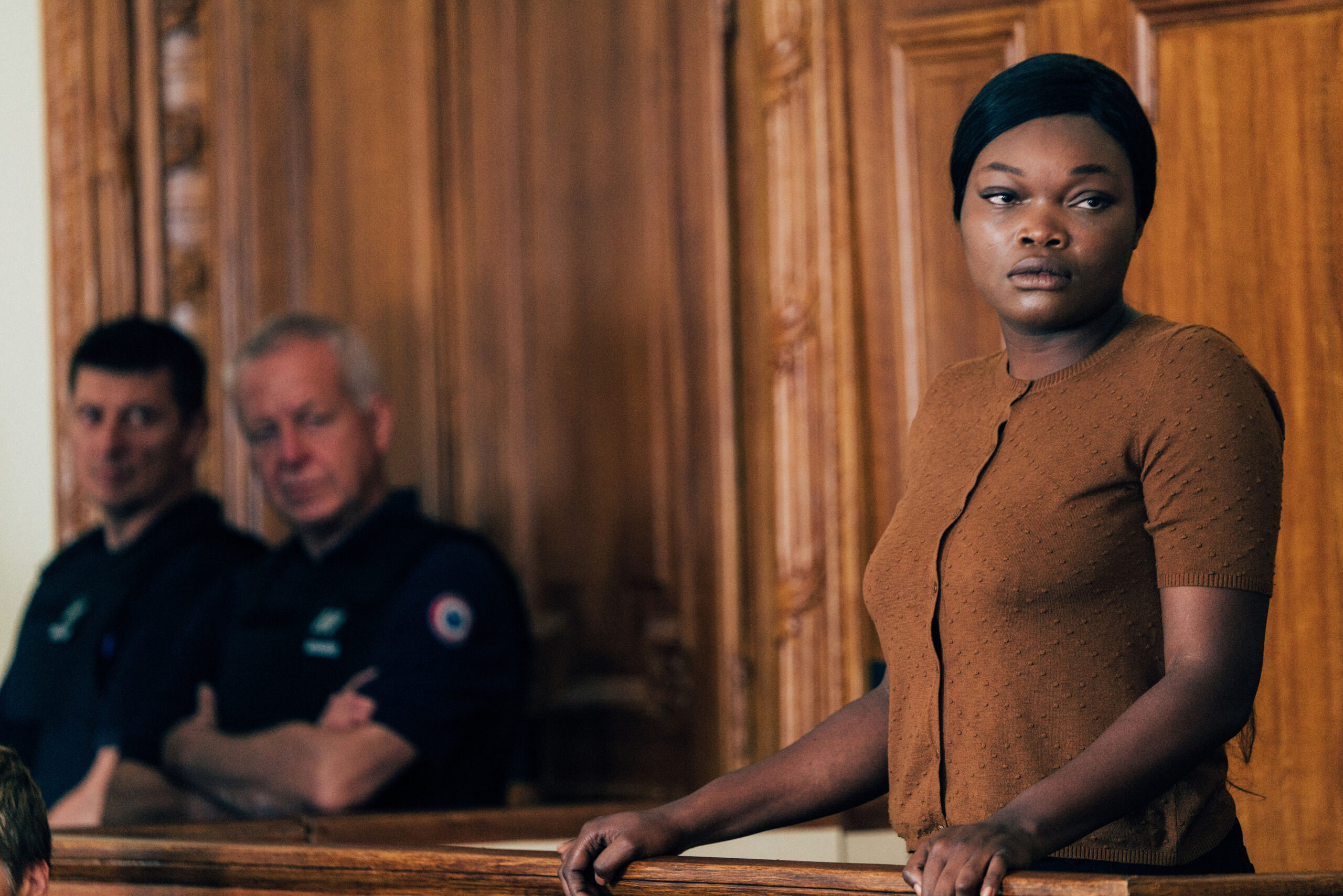
Saint Omer is told from the perspective of Rama (Kayije Kagame), the daughter of African immigrants and a novelist by trade, who attends the trial of Laurence Coly (Guslagie Malanga), a young woman accused of killing her 15-month-old daughter by abandoning her to the rising tide on a beach in northern France. But as the trial continues, the words of the accused and witness testimonies will shake Rama’s convictions and call into question our own judgement.
This film is a courtroom procedural that remains compelling despite the atypical way it is shot and presented to the audience, due to director/co-writer Alice Diop’s background as a documentarian. Her origin is most evident in how she shoots this film, particularly its courtroom scenes. The camera is mostly static, sitting on the faces and bodies of the characters to convey and put their emotions on display directly rather than moving around showing various vantage points. For nearly 30 minutes, the camera stays in place on Laurence in the courtroom as she testifies and tells her story, only sometimes switching focus to the judge or a profile shot of her mother as they listen. Despite the lack of dynamic camera movement or cuts, the film remains engaging and perhaps pulls the audience in even more as the characters passionately making their cases to the camera directly draws you in to listen and consider their perspectives. The intimate way in which they present themselves makes the characters feel more real and the emotions more genuine, particularly Laurence, as the story unfolds and Laurence’s life and mind state are laid out.
Thematically, Saint Omer is an examination of the experiences of immigrant women and women’s issues and of inherited trauma. Through both Laurence’s trial and Rama’s experience with her family wanting her to be more involved in supporting their elderly mother, we see the pressure that many children of immigrants face to satisfy their parents, specifically for daughters, the poverty and lack of support system once immigrant families arrive, the racism that they face, and how they risk being taken advantage of by others and ultimately failed by the system. This is best encapsulated by Laurence’s relationship with the father of her child Luc Dumontet (Xavier Maly) and his lack of affection and care for his much younger girlfriend and daughter, hiding them and essentially only using Laurence as a concubine. The vulnerability inherent in being a bit of an outsider to the dominate culture leaves young women like Laurence open for mistreatment, which a system that also viewers her as an outsider isn’t equipped to best address, as her trial shows. The film provides a comprehensive cataloguing of these issues, but can the character be sympathetic considering how she ends up addressing these hardships? All of these things are an explanation of how she ended up making the choice that she did, but they cannot be an excuse. Is the film trying to do so?
During the course of its story, Saint Omer invokes the Greek tragedy of Medea, who after betraying her family her husband on his quest to gain the valuable Golden Fleece from her own father, kills her children and her husband’s new wife and father-in-law after he leaves her for another woman. The ancient story is written to evoke sympathy due to how much she suffered and lost at his hand, but for many, the answer to this question is ultimately subjective. Some may excuse extreme emotion in the face of extreme adversity and betrayal, some may believe there is never an excuse for such extreme measures such as infanticide for revenge. This conflict is central to Laurence’s story within this film and how some in the audience may feel about what Saint Omer is asking you to consider and feel about Laurence’s decisions and experience as an African in France.
It is without question that Saint Omer is an interesting film that explores fascinating questions about women and immigration in a modern western society. Alice Diop’s feature film debut tells this story through intimate camera work that mirrors the depth in which she explores and examines the themes surrounding Laurence’s life specifically and the lives of the real Laurences around the world in general. This is a film well worth your time.
Image: NEON

